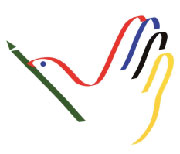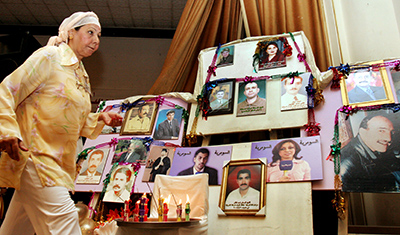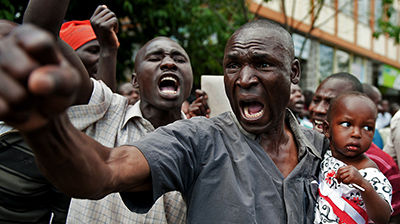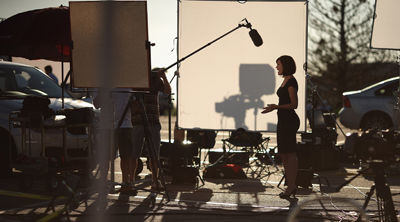Frank Smyth/CPJ Senior Adviser for Journalist Security
Frank Smyth is CPJ’s senior adviser for journalist security. He has reported on armed conflicts, organized crime, and human rights from nations including El Salvador, Guatemala, Colombia, Cuba, Rwanda, Uganda, Eritrea, Ethiopia, Sudan, Jordan, and Iraq. Follow him on Twitter @JournoSecurity.

In 2 major efforts, journalist security tailored to fit
In the past, donors and groups providing security to journalists in less-developed nations tended to export a Western, military-style of training designed for a war-time environment. But the danger of covering combat is one thing. Being fired upon by a motorcycle-riding assassin is another–as is being sexually molested in a crowd, discovering a video camera…

Iraq war and news media: A look inside the death toll
The U.S.-led war in Iraq claimed the lives of a record number of journalists and challenged some commonly held perceptions about the risks of covering conflict. Far more journalists, for example, were murdered in targeted killings in Iraq than died in combat-related circumstances. Here, on the 10th anniversary of the start of the war, is…

In tense climate, Kenyan press can draw on solidarity
Amid a tense presidential election, Kenyans have avoided a repeat of the deadly violence that followed the vote in 2007, when half a million people were uprooted and more than 1,000 people were killed. Still, the situation today is fraught. Ethnic identity dominates the nation’s political divisions–and those same loyalties can undermine solidarity in the…

Stressed out: How should newsrooms handle trauma?
The rampage inside a Colorado movie theater that killed 12 people and injured dozens more is the most recent reminder that a journalist anywhere can face sudden, great emotional stress. Any story involving tragedy–from domestic violence to natural disasters–can inflict an emotional toll on field journalists. The very empathy that makes a journalist a good…

Bossa Nova’s home and Olympics host is risky for press
The jagged mountains ringing Rio de Janeiro descend to a temperate valley with two storied beaches on the Atlantic. Here is the city that gave the world a new, eclectic musical beat with the Bossa Nova, the South American jewel that will host the summer Olympic Games in 2016. Yet Rio has also been the…
Free expression in Americas goes beyond left or right
On Sunday the general assembly of the Organization of American States will convene in Bolivia in the verdant, highland valley city of Cochabamba. The 35 member states (every nation in the region except Cuba) are expected to vote on a measure that, if passed, could curtail free expression and press throughout the hemisphere and put…

Why journalists need new ways to stay safe
After the Salvadoran online newsmagazine El Faro exposed a secret government deal with criminal gangs last month, its staff faced repercussions that illustrate the new and complicated risks facing journalists worldwide. El Faro’s report, which said the government provided more lenient treatment of imprisoned gangsters in exchange for the groups’ agreement to slow down their…

From Small World, timely advice on safe satphone use
Journalists and technologists often speak different languages. But a Portland, Oregon-based nonprofit, Small World News, is bridging the gap with a new guide on the safe use of satellite phones. It comes at a critical time. The group’s Guide to Safely Using Satphones just went online, less than three weeks after the deaths of international…
Caveat utilitor: Satellite phones can always be tracked
The Telegraph in London was the first to report that Syrian government forces could have “locked on” to satellite phone signals to launch the rocket attacks that killed journalists Marie Colvin and Rémi Ochlik, as well as many Syrian civilians, besides wounding dozens more including two more international journalists. Working out of a makeshift press…
For journalists, cyber-security training slow to take hold
For centuries, journalists have been willing to go to prison to protect their sources. Back in 1848, New York Herald correspondent John Nugent spent a month in jail for refusing to tell a U.S. Senate committee his source for a leak exposing the secret approval of a treaty with Mexico. In a digital age, however,…